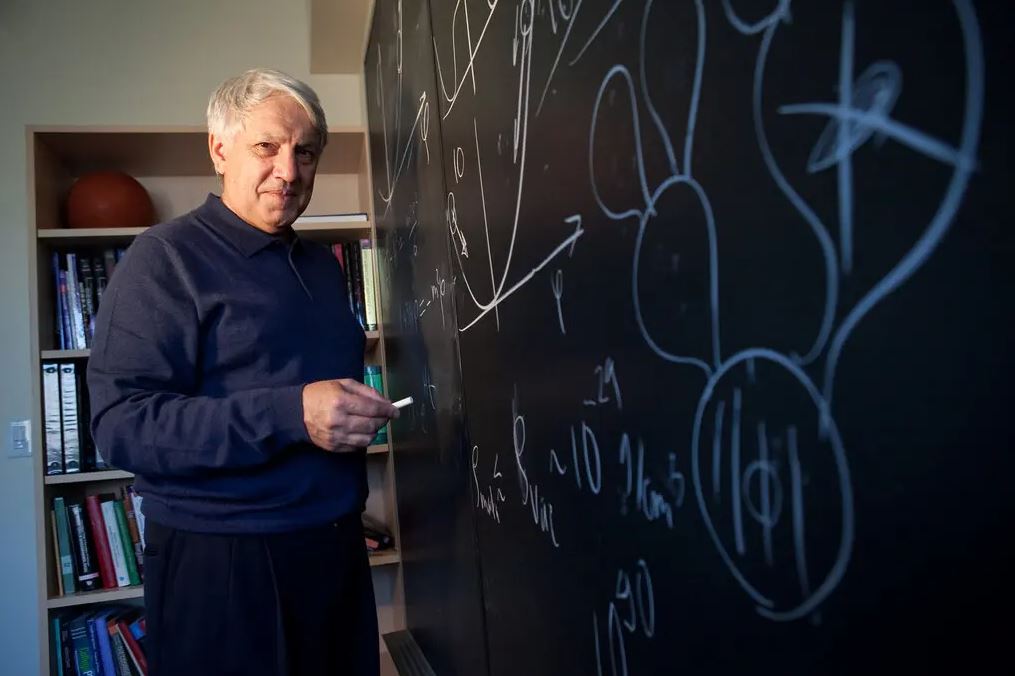One of the many benefits of worldwide scientific cooperation, in addition to the sharing of expenses and brainpower, is the development of human ties that transcend particular cultures, customs, and political regimes, among other things.
A decade after discovering the Higgs boson — the fundamental particle of mass in the universe — scientists at the European Organization for Nuclear Research, or CERN, outside Geneva, Switzerland, still get a kick out of describing the diverse array of peoples — Israelis and Iranians; Hindus and Muslims; atheists and Catholics — who worked side by side a decade ago to discover the Higgs boson. After arriving at the International Space Station, astronauts take pleasure in the brotherhood of the universe, which is represented by the ceremonial distribution of bread and salt amongst crewmembers.
Because of growing resistance to Russia’s invasion of Ukraine among scientists — even in Russia, where using the term “invasion” in relation to Ukraine is now a criminal — these links are now being jeopardised. Conferences and academic exchanges have been postponed till further notice. The number of open letters from Nobel Prize recipients and other organisations has increased dramatically. The Russian and American space programmes, which have been interwoven for more than 30 years, now seem to be on their road to becoming independent.
The waves of censure finally reached CERN, which has served as an embodiment of the ideal of worldwide cooperation for decades. On Tuesday, the CERN Council, the lab’s governing body, decided that it would not participate in any new partnerships with the Russian Federation “until further notice” and that the Russian Federation’s observer status at the lab would be terminated.
Protests have not been limited to the Western hemisphere. An open letter to the editor was published on the Troitskiy Variant website, an independent scientific newspaper in Russia, on February 24 by Russian academics and science journalists, who described Ukraine’s invasion of the country as “unfair and plainly foolish.”
According to Andrei Linde, a Russian cosmologist who works at Stanford University and is one of the letter’s signatories, the petition has received the signatures of around 7,750 Russians. After the Russian parliament passed legislation making it a criminal offence punishable by up to 15 years in prison to refer to the invasion of Ukraine as anything other than a “special military operation,” the letter was removed from that website, but it can still be accessed through the Wayback Machine.
Another source of embarrassment for Russia came when Oleg Anisimov, a climatologist at the State Hydrological Institute in Saint Petersburg who was in charge of the Russian delegation to the United Nations Intergovernmental Panel on Climate Change meeting on Feb. 27 took a break from his speech to apologise to the citizens of Ukraine for their involvement in the attack.
The laboratory was established in 1954 to aid in the reunification of a war-torn Europe, and the results have been magnificently stunning. Its Large Hadron Collider is the dominant force in particle physics; the finding of the long-sought Higgs boson by the collider a decade ago sent shockwaves across the world. As a result of CERN’s efforts to make it easier for scientists to exchange their data, the World Wide Web was developed.
CERN’s director-general, Fabiola Gianotti, said in a statement that the organization’s aim was to develop bridges between nations. According to her, “science and the arts may play a role in maintaining communication channels during times of aggression, conflict, and political division.” When the time comes, such conduits will be critical in re-establishing a foundation.”
A sampling of physicists who were contacted by phone and email expressed their support for the decision. “When compared to what is happening in Ukraine, the suspension of the Russian Federation’s observer status at CERN is a rather small matter,” Dr. Linde said.
It is unclear what all of this implies for the individual scientists working at CERN. Dr. Gianotti stated in a message to the lab that no one was being sent home and that current partnerships were being preserved, at least for the time being.
According to Mike Lamont, CERN’s director for accelerators and technologies, the organization’s plans to resume the Large Hadron Collider in April, after three years of repairs and modifications, are on track so far.
As a result, the promise of a narrow communication bridge has survived. According to an email from Michael Turner, a physicist at the Kavli Foundation in Los Angeles and a former president of the American Physical Society, the importance of informal working connections cannot be overstated. In his words, “scientists are typically highly powerful members of their society,” and their interactions serve as a “reminder of the humanity of all humans, including those who live in nations whose governments are doing heinous things.”

